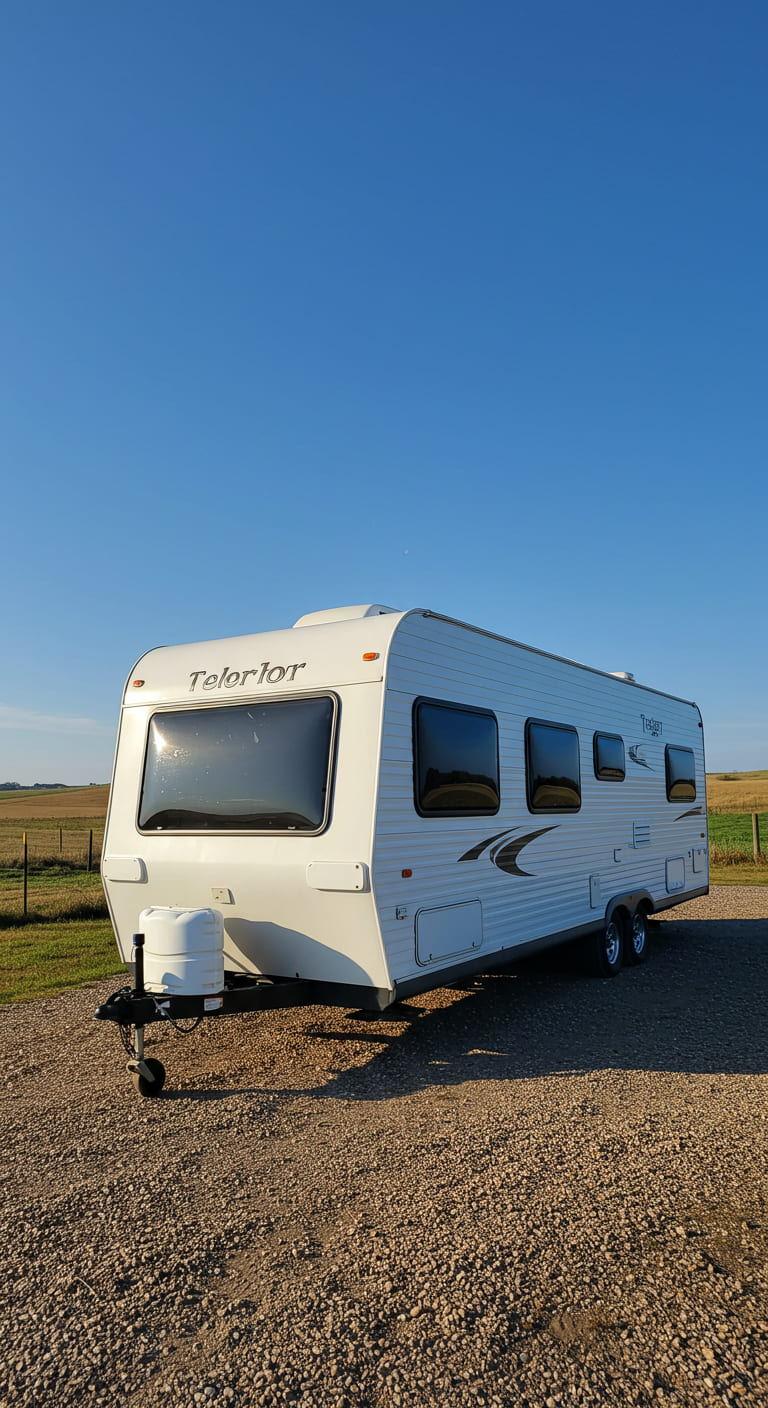As someone who has spent considerable time exploring the nuances of mobile home living and the implications of mobile home park closures, I can attest to the complexities and emotional toll such events can have on residents. Mobile home parks often serve as affordable housing solutions for many families, retirees, and individuals. However, when a mobile home park closes, the consequences can be profound and multifaceted. In this article, I will delve into what happens when a mobile home park closes, the impacts on residents, and the broader implications for communities.
Understanding Mobile Home Parks
Before we dive into the ramifications of park closures, it’s essential to understand what mobile home parks are and why they are significant. Mobile home parks, also known as manufactured home communities, provide a unique form of housing. They are often seen as a more affordable alternative to traditional housing, allowing individuals and families to own their homes without the burden of high property prices.
According to the Manufactured Housing Institute, there are approximately 8.5 million people living in manufactured housing in the United States. This statistic underscores the importance of mobile home parks as a vital component of the housing ecosystem.
The Reasons Behind Mobile Home Park Closures
Several factors can lead to the closure of a mobile home park:
- Development Pressure: In many urban areas, land is at a premium. Developers may purchase mobile home parks to build high-rise apartments or commercial spaces, prioritizing profit over the needs of current residents.
- Land Use Changes: Changes in zoning laws can render mobile home parks obsolete, particularly if the land is repurposed for more lucrative developments.
- Economic Viability: Some parks may struggle financially, leading owners to sell the property rather than invest in updates or maintenance.
- Natural Disasters: Events like floods, hurricanes, or wildfires can damage parks beyond repair, forcing residents to relocate.
The Immediate Consequences for Residents
When a mobile home park closes, the immediate impact on residents can be devastating. Here are some of the primary consequences:
- Displacement: Residents often find themselves in a precarious situation, facing the challenge of finding new housing on short notice. For many, this is not just a matter of relocation but also of financial strain.
- Property Value Loss: Homeowners in the park may find that their properties decline in value or become unsellable. This situation often occurs when a park is slated for closure, leading to a loss of equity.
- Emotional Stress: The emotional toll of losing one’s home cannot be overstated. Many residents form strong community bonds and the prospect of losing those connections can be heart-wrenching.
- Legal Battles: Residents may be forced to engage in legal disputes with park owners, which can be both costly and time-consuming.
Long-Term Consequences for Communities
The closure of a mobile home park can ripple out, affecting not just the residents but also the surrounding community. Here’s how:
- Community Displacement: Mobile home parks often foster tight-knit communities. When these parks close, the loss of community can lead to social fragmentation.
- Increased Homelessness: Some residents may find themselves without affordable housing options, contributing to a rise in homelessness in the area.
- Economic Impact: The closure of a park can lead to reduced local spending as displaced residents seek housing elsewhere, harming local businesses.
- Infrastructure Strain: As people move out of mobile home parks, local governments may face challenges in managing infrastructure, such as schools and public services, which were once supported by a stable population.
Case Studies: Real-Life Impact of Mobile Home Park Closures
To illustrate the impact of mobile home park closures, let’s consider a couple of real-life examples:
The Closure of Lakewood Village
In 2018, Lakewood Village in California was slated for closure to make way for a luxury apartment complex. The park housed over 100 families, many of whom had lived there for decades. The residents banded together to fight the closure, organizing protests and seeking legal action. Despite their efforts, the park was ultimately closed, leading to widespread displacement and emotional distress among residents.
The Case of the Green Acres Mobile Home Park
In a notable case in Florida, the Green Acres Mobile Home Park was closed after it was sold to a developer. The city faced backlash as many residents, including retirees on fixed incomes, were unable to find affordable housing alternatives. The community rallied together, and after a lengthy legal battle, some residents were able to negotiate a buyout that allowed them to relocate with some financial support.
Resources and Support for Displaced Residents
If you find yourself in a situation where your mobile home park is closing, it’s crucial to know that support is available. Here are some resources to consider:
- Local Housing Authorities: They can provide information on affordable housing options and may offer financial assistance.
- Legal Aid Organizations: These organizations offer legal support for tenants facing eviction or displacement.
- Nonprofits: Various nonprofits focus on housing issues and can help connect residents with resources and support networks.
- Community Groups: Engaging with community groups can provide emotional support and practical assistance during the transition.
Preventative Measures: Advocating for Residents’ Rights
One of the best ways to mitigate the impact of mobile home park closures is through proactive advocacy. Here are some measures that can help protect residents:
- Strengthening Rent Control Laws: Advocating for stronger rent control measures can help protect residents from sudden rent increases that may prompt closures.
- Supporting Community Land Trusts: These organizations can help purchase and maintain mobile home parks as affordable housing options.
- Engaging Local Governments: Building relationships with local governments can lead to better policies that protect mobile home parks from redevelopment.
- Educating Residents: Providing education on tenant rights and organizing efforts can empower residents to advocate for themselves.
The Role of Policy in Protecting Mobile Home Parks
Effective policy can play a crucial role in preserving mobile home parks and protecting residents. Here are some strategies that policymakers can implement:
- Zoning Regulations: Implementing zoning regulations that protect mobile home parks from being redeveloped can help preserve affordable housing.
- Incentives for Park Owners: Providing tax incentives for park owners to maintain their properties can discourage closures.
- Support for Relocation Assistance: Establishing programs that provide relocation assistance to displaced residents can ease the transition.
- Community Engagement: Encouraging community engagement in decision-making processes can ensure that residents have a voice in matters affecting their homes.
Conclusion: The Importance of Community and Advocacy
As I reflect on the issue of mobile home park closures, it becomes clear that the impact extends far beyond the immediate loss of housing. The emotional, social, and economic ramifications can be profound, affecting individuals and communities alike. It’s crucial to raise awareness about this issue, advocate for policies that protect residents, and provide support for those facing displacement.
By working together as a community, we can help ensure that mobile home parks remain a viable and affordable housing option for generations to come. Let’s share our thoughts, advocate for change, and support those affected by these closures. Your voice matters!
FAQ
What should I do if my mobile home park is closing?
If you learn that your mobile home park is closing, start by contacting local housing authorities for assistance. Explore your options for relocation and seek legal advice if necessary.
Are there organizations that help residents of closed mobile home parks?
Yes, various nonprofits and legal aid organizations offer support and resources for residents facing displacement. Reach out to local groups for help.
Can mobile home parks be protected from closure?
Yes, through community advocacy, stronger policies, and protective zoning regulations, mobile home parks can be preserved as affordable housing options.
How can I get involved in advocating for mobile home park residents?
You can start by joining local advocacy groups, attending community meetings, and reaching out to your local representatives to voice your support for policies that protect mobile home parks.
If you found this article informative, please consider signing up for our newsletter to receive updates on housing issues and community advocacy. Share this article with friends and on social media to help raise awareness about the impact of mobile home park closures. Together, we can make a difference!
LED Red Tail Trailer Light kit, Wiring Harness,12V,Waterproof,Submersible,Side Marker Stop Brake Turn Signal Reverse For Bus Lorry Camper Boat Truck RV Pickup Golf Cart Motorcycle(Light kit)
$23.99 (as of October 8, 2025 06:39 GMT -03:00 - More infoProduct prices and availability are accurate as of the date/time indicated and are subject to change. Any price and availability information displayed on [relevant Amazon Site(s), as applicable] at the time of purchase will apply to the purchase of this product.)
Sign up for our newsletter and stay up to date with exclusive news
that can transform your routine!





